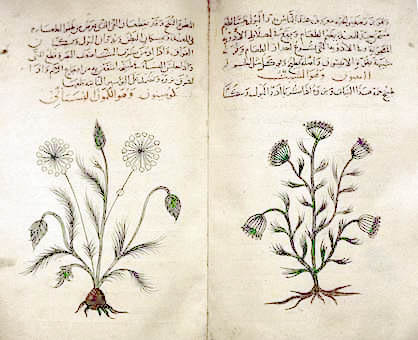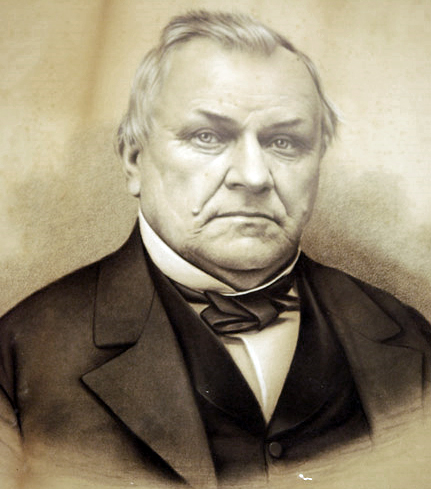|
German Commission E
The German ''Commission E'' is a scientific advisory board of the Federal Institute for Drugs and Medical Devices formed in 1978. The commission gives scientific expertise for the approval of substances and products previously used in traditional, folk and herbal medicine. The commission became known beyond Germany in the 1990s for compiling and publishing 380 monographs evaluating the safety and efficacy of herbs for licensed medical prescribing in Germany. The monographs were published between 1984 and 1994 in the ''Bundesanzeiger''; they have not been updated since then but are still considered valid. A summary of the publications is available on the website of the commission; unofficial copies of the monographs are available at the ''Heilpflanzen-Welt Bibliothek''. The monographs are a collection of official documents compiled over nearly two decades by a committee composed of twenty four scientific experts that was set up in 1978 to evaluate the safety and efficacy of herbal me ... [...More Info...] [...Related Items...] OR: [Wikipedia] [Google] [Baidu] |
Federal Institute For Drugs And Medical Devices
The Federal Institute for Drugs and Medical Devices (in German: Bundesinstitut für Arzneimittel und Medizinprodukte – ''BfArM'') is the medical regulatory body in Germany. It operates under the Federal Ministry of Health (BMG). It is headquartered in Bonn, Germany. Its president is Prof. Dr. Karl Broich. Portfolio of the BMG Alongside the '' Paul-Ehrlich-Institut'' (PEI), the BfArM is one of the two independent federal higher authorities in the German health sector. Further authorities within the portfolio of the BMG are: * The '' Robert-Koch-Institut'' (RKI) is the Federal Government's central institution in the field of public health responsible for identifying, preventing and combating diseases and serves as the National Institute of Public Health. * The ''Paul-Ehrlich-Institut'', Federal Institute for Vaccines and Biomedicines, makes an essential contribution to the availability and safety of effective biomedical products. * Improving the citizens' health is the aim of the ... [...More Info...] [...Related Items...] OR: [Wikipedia] [Google] [Baidu] |
Bundesanzeiger
The ''Bundesanzeiger'' is an official publication of the Federal Republic of Germany Germany,, officially the Federal Republic of Germany, is a country in Central Europe. It is the second most populous country in Europe after Russia, and the most populous member state of the European Union. Germany is situated between ... published by the German department of Justice with a scope similar to that of the Federal Register in the United States. It is used for announcing laws, mandatory legal and judicial announcements, announcing changes in the Handelsregister and for legally mandated announcements by the private sector. It is being superseded by the elektronischer Bundesanzeiger (eBAnz) (electronic Bundesanzeiger) in recent years. Bundesanzeiger is published by Cologne-based M. DuMont Schauberg. External links * Government gazettes Government of Germany {{Germany-gov-stub ... [...More Info...] [...Related Items...] OR: [Wikipedia] [Google] [Baidu] |
Foreword
A foreword is a (usually short) piece of writing, sometimes placed at the beginning of a book or other piece of literature. Typically written by someone other than the primary author of the work, it often tells of some interaction between the writer of the foreword and the book's primary author or the story the book tells. Later editions of a book sometimes have a new foreword prepended (appearing before an older foreword if there was one), which might explain in what respects that edition differs from previous ones. When written by the author, the foreword may cover the story of how the book came into being or how the idea for the book was developed, and may include thanks and acknowledgments to people who were helpful to the author during the time of writing. Unlike a preface, a foreword is always signed. Information essential to the main text is generally placed in a set of explanatory notes, or perhaps in an introduction, rather than in the foreword or like preface. The ... [...More Info...] [...Related Items...] OR: [Wikipedia] [Google] [Baidu] |
Varro Eugene Tyler
Varro Eugene Tyler (December 19, 1926 – August 22, 2001), of Auburn, Nebraska, was an American professor of pharmacognosy and philatelist who specialized in the study of forged postage stamps and the forgers who created them. Academic career Tyler graduated in pharmacy from the University of Nebraska in 1949, attended Yale University as an Eli Lilly Research Fellow and received M.S. and Ph.D. degrees from the University of Connecticut in 1951 and 1953. Dr. Tyler was appointed associate professor and chairman of the Department of Pharmacognosy at the University of Nebraska and held similar positions at the University of Washington. Dr. Tyler accepted the appointment as dean of the School of Pharmacy and Pharmaceutical Sciences at Purdue University in 1966 and was closely associated with the Purdue University for the rest of his career. His research interests included medicinal and toxic constituents of higher fungi, phytochemical analysis, alkaloid biosynthesis, drug plant cu ... [...More Info...] [...Related Items...] OR: [Wikipedia] [Google] [Baidu] |
Pharmacognosy
Pharmacognosy is the study of medicinal plants and other natural substances as sources of drugs. The American Society of Pharmacognosy defines pharmacognosy as "the study of the physical, chemical, biochemical, and biological properties of drugs, drug substances, or potential drugs or drug substances of natural origin as well as the search for new drugs from natural sources". Description The word "pharmacognosy" is derived from two Greek words: ', (drug), and ''gnosis'' (knowledge) or the Latin verb '' cognosco'' (', 'with', and , 'know'; itself a cognate of the Greek verb , , meaning 'I know, perceive'), meaning 'to conceptualize' or 'to recognize'. The term "pharmacognosy" was used for the first time by the Austrian physician Schmidt in 1811 and by Anotheus Seydler in 1815 in a work titled ''Analecta Pharmacognostica''. Originally—during the 19th century and the beginning of the 20th century—"pharmacognosy" was used to define the branch of medicine or commodity scie ... [...More Info...] [...Related Items...] OR: [Wikipedia] [Google] [Baidu] |
Purdue University
Purdue University is a public land-grant research university in West Lafayette, Indiana, and the flagship campus of the Purdue University system. The university was founded in 1869 after Lafayette businessman John Purdue donated land and money to establish a college of science, technology, and agriculture in his name. The first classes were held on September 16, 1874, with six instructors and 39 students. It has been ranked as among the best public universities in the United States by major institutional rankings, and is renowned for its engineering program. The main campus in West Lafayette offers more than 200 majors for undergraduates, over 70 masters and doctoral programs, and professional degrees in pharmacy, veterinary medicine, and doctor of nursing practice. In addition, Purdue has 18 intercollegiate sports teams and more than 900 student organizations. Purdue is the founding member of the Big Ten Conference and enrolls the largest student body of any individual univer ... [...More Info...] [...Related Items...] OR: [Wikipedia] [Google] [Baidu] |
Contraindication
In medicine, a contraindication is a condition that serves as a reason not to take a certain medical treatment due to the harm that it would cause the patient. Contraindication is the opposite of indication, which is a reason to use a certain treatment. ''Absolute contraindications'' are contraindications for which there are no reasonable circumstances for undertaking a course of action. For example, children and teenagers with viral infections should not be given aspirin because of the risk of Reye syndrome, and a person with an anaphylactic food allergy should never eat the food to which they are allergic. Similarly, a person with hemochromatosis should not be administered iron preparations. ''Relative contraindications'' are contraindications for circumstances in which the patient is at higher risk of complications from treatment, but these risks may be outweighed by other considerations or mitigated by other measures. For example, a pregnant woman should normally avoid gett ... [...More Info...] [...Related Items...] OR: [Wikipedia] [Google] [Baidu] |
Taxonomy (biology)
In biology, taxonomy () is the scientific study of naming, defining ( circumscribing) and classifying groups of biological organisms based on shared characteristics. Organisms are grouped into taxa (singular: taxon) and these groups are given a taxonomic rank; groups of a given rank can be aggregated to form a more inclusive group of higher rank, thus creating a taxonomic hierarchy. The principal ranks in modern use are domain, kingdom, phylum (''division'' is sometimes used in botany in place of ''phylum''), class, order, family, genus, and species. The Swedish botanist Carl Linnaeus is regarded as the founder of the current system of taxonomy, as he developed a ranked system known as Linnaean taxonomy for categorizing organisms and binomial nomenclature for naming organisms. With advances in the theory, data and analytical technology of biological systematics, the Linnaean system has transformed into a system of modern biological classification intended to reflect the evolu ... [...More Info...] [...Related Items...] OR: [Wikipedia] [Google] [Baidu] |
Journal Of The American Medical Association
''The Journal of the American Medical Association'' (''JAMA'') is a peer-reviewed medical journal published 48 times a year by the American Medical Association. It publishes original research, reviews, and editorials covering all aspects of biomedicine. The journal was established in 1883 with Nathan Smith Davis as the founding editor. Kirsten Bibbins-Domingo of the University of California San Francisco became the journal editor-in-chief on July 1, 2022, succeeding Howard Bauchner of Boston University. History The journal was established in 1883 by the American Medical Association and superseded the ''Transactions of the American Medical Association''. ''Councilor's Bulletin'' was renamed the ''Bulletin of the American Medical Association'', which later was absorbed by the ''Journal of the American Medical Association''. In 1960, the journal obtained its current title, ''JAMA: The Journal of the American Medical Association''. The journal is commonly referred to as ''JAMA''. ... [...More Info...] [...Related Items...] OR: [Wikipedia] [Google] [Baidu] |
Medical Manuals
Medicine is the science and practice of caring for a patient, managing the diagnosis, prognosis, prevention, treatment, palliation of their injury or disease, and promoting their health. Medicine encompasses a variety of health care practices evolved to maintain and restore health by the prevention and treatment of illness. Contemporary medicine applies biomedical sciences, biomedical research, genetics, and medical technology to diagnose, treat, and prevent injury and disease, typically through pharmaceuticals or surgery, but also through therapies as diverse as psychotherapy, external splints and traction, medical devices, biologics, and ionizing radiation, amongst others. Medicine has been practiced since prehistoric times, and for most of this time it was an art (an area of skill and knowledge), frequently having connections to the religious and philosophical beliefs of local culture. For example, a medicine man would apply herbs and say prayers for healing, or an ancie ... [...More Info...] [...Related Items...] OR: [Wikipedia] [Google] [Baidu] |
Legal History Of Germany
The law of Germany (german: das Recht Deutschlands), that being the modern German legal system (german: Deutsches Rechtssystem), is a system of civil law which is founded on the principles laid out by the Basic Law for the Federal Republic of Germany, though many of the most important laws, for example most regulations of the civil code (''Bürgerliches Gesetzbuch'', or BGB) were developed prior to the 1949 constitution. It is composed of public law (''öffentliches Recht''), which regulates the relations between a citizen/person and the state (including criminal law) or two bodies of the state, and the private law, (''Privatrecht'') which regulates the relations between two people or companies. It has been subject to a wide array of influences from Roman law, such as the Corpus Juris Civilis, to Napoleonic law, such as the Napoleonic Code. History German law has been subject to many influences over the centuries. Until Medieval times the Early Germanic Law, derived from t ... [...More Info...] [...Related Items...] OR: [Wikipedia] [Google] [Baidu] |




